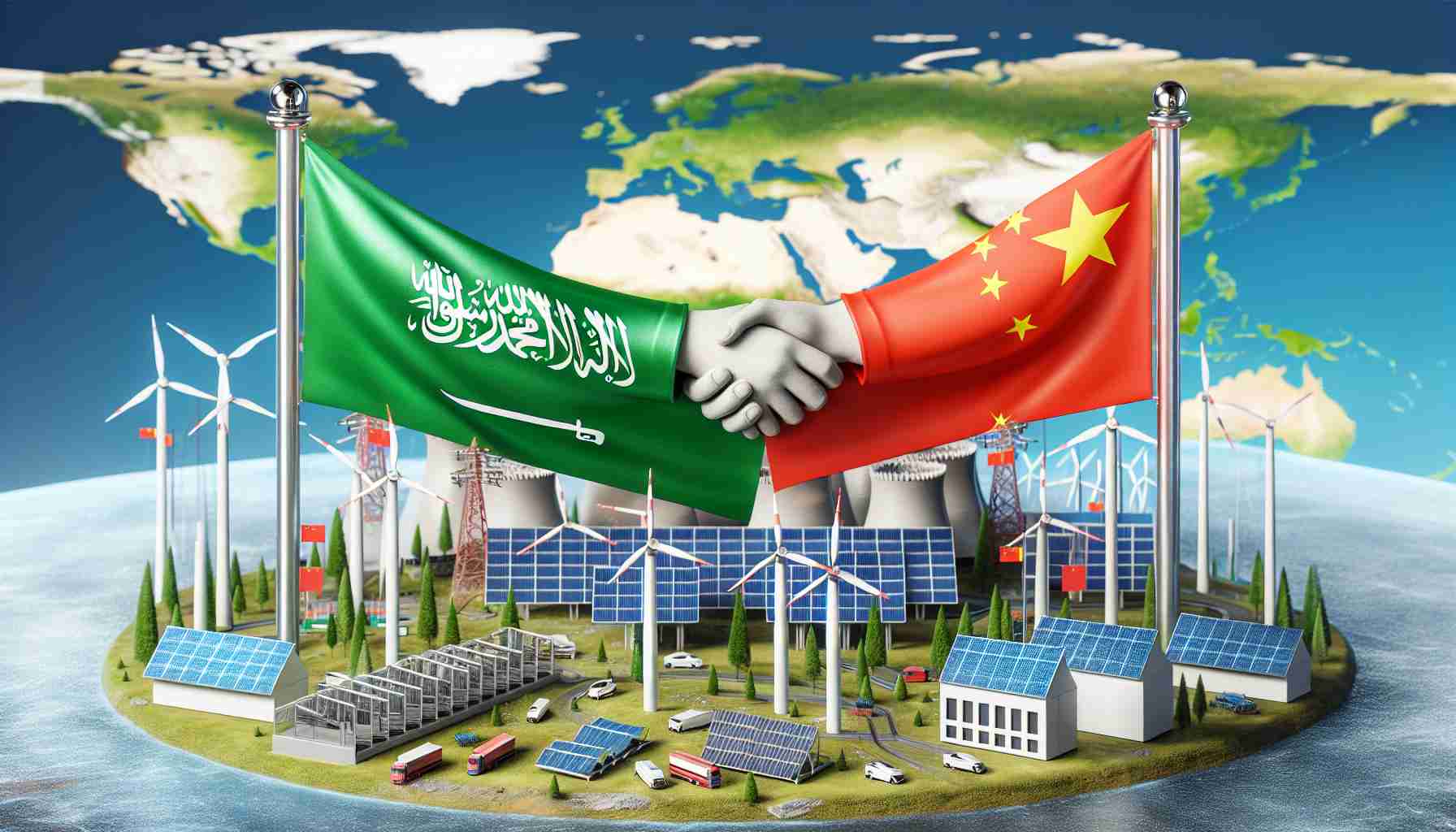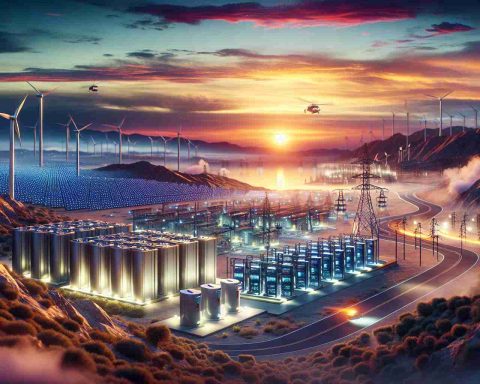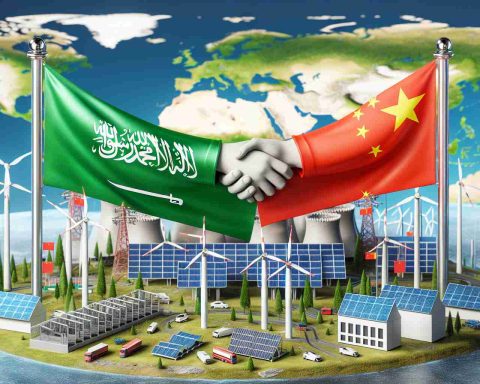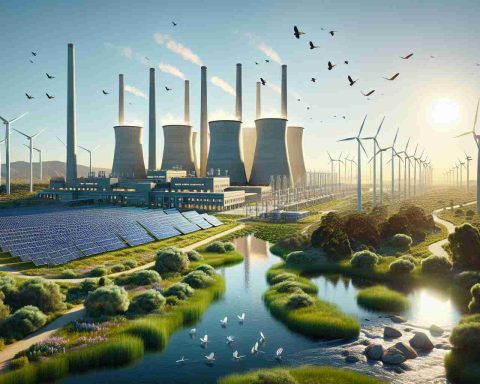- Saudi Arabia and China are launching a bold 2-GWh battery storage project to transform global energy management.
- Utilizing artificial intelligence and lithium-ion technology, the initiative aims to enhance energy efficiency and reliability.
- Environmental benefits include reduced fossil fuel dependency and lower greenhouse gas emissions.
- Economic opportunities arise from attracting green investments and fostering job creation.
- The project seeks to boost quality of life in remote areas by ensuring stable power supply for essential services.
- Initial high costs and ethical material sourcing are challenges, but long-term benefits encourage global renewable investment.
- This collaboration sets a benchmark for international efforts toward a sustainable energy future.
Saudi Arabia and China are set to revolutionize the renewable energy landscape with their ambitious 2-gigawatt-hour (GWh) battery storage initiative. This cutting-edge project could reshape how we manage energy globally, offering a beacon of hope in the fight against climate change and marking a milestone in sustainable technological advancements.
Game-Changing Innovations include the integration of artificial intelligence for superior predictive analytics, optimizing energy efficiency and reducing waste. This partnership leverages the latest in lithium-ion technology, ensuring longevity and unmatched storage capacity, setting new benchmarks in performance and reliability. Real-time monitoring systems are at the heart of this project, providing seamless energy distribution even when dealing with the unpredictable nature of wind and solar power.
Transformative Benefits stretch across environmental, economic, and societal dimensions. Environmentally, the project helps reduce reliance on fossil fuels, a crucial step in curbing greenhouse gas emissions. Economically, it promises to attract significant green investments, fostering job creation and paving the way for economic diversification, particularly crucial for nations traditionally dependent on fossil fuels. On a humanitarian level, it has the potential to improve the quality of life in remote communities by ensuring consistent power supply, thereby enhancing essential services such as education and healthcare.
Challenges and Opportunities include high initial costs and the ethical sourcing of materials for battery construction. However, the long-term benefits, such as fostering global collaboration and expanding investments in renewables, create a compelling argument for adoption.
A Future Blueprint is on display as this Saudi-China collaboration sets a precedent for international cooperation. As the world shifts towards greener horizons, this formidable partnership acts as a catalyst, inspiring further cross-border alliances to combat the pressing energy challenges of our time. This initiative is not just a technological triumph; it’s a visionary stride toward a sustainable future.
Will Saudi Arabia and China’s Battery Initiative Power a New Era in Green Energy?
New Insights on the Saudi Arabia-China Renewable Energy Initiative
The groundbreaking Saudi Arabia-China initiative to build a 2-gigawatt-hour (GWh) battery storage system is poised to redefine the global renewable energy landscape. Below, we explore fresh perspectives and insights pertinent to this ambitious project.
How Does the Initiative Leverage AI and Blockchain for Enhanced Energy Efficiency?
The collaboration between Saudi Arabia and China integrates advanced technologies like artificial intelligence (AI) and blockchain to maximize energy efficiency. AI is employed to enhance predictive analytics, allowing for superior energy supply forecasting which minimizes waste. Additionally, blockchain ensures transparent and secure data handling, facilitating smoother transactions and enhancing trust among stakeholders.
Key Points:
– Enhanced predictive analytics through AI
– Blockchain for data security and transparency
What Are the Economic Implications of This Renewable Energy Project?
The economic impact of the Saudi-China battery storage initiative is vast, with the potential to:
– Attract significant green capital investments
– Stimulate job growth in renewable energy sectors
– Facilitate economic diversification for nations reliant on fossil fuels
Long-Term Economic Benefits:
These economic effects are expected to trickle down to local economies, contributing not only to the growth of the renewables sector but also supporting ancillary industries.
What Are the Potential Environmental and Ethical Challenges?
While promising numerous benefits, the project also faces challenges related to:
– Ethical sourcing of lithium-ion materials: The extraction process can be environmentally damaging and ethically contentious.
– Initial high costs: Although the initial investment is substantial, the long-term environmental savings present a compelling case.
Despite these challenges, the effort to reduce reliance on fossil fuels marks a significant step towards minimizing greenhouse gas emissions worldwide.
The Future of Global Cooperation in Renewable Energy
The Saudi-China partnership lays a foundation for international cooperation in renewable energy, setting an inspirational precedent for other nations. This venture highlights the importance of global alliances in tackling energy challenges and acts as a catalyst for future innovations in sustainability.
Discover More
For more insights into similar initiatives and developments in renewable energy, visit the main domains of these relevant sites:
– International Energy Agency
– International Renewable Energy Agency
– The World Bank
















